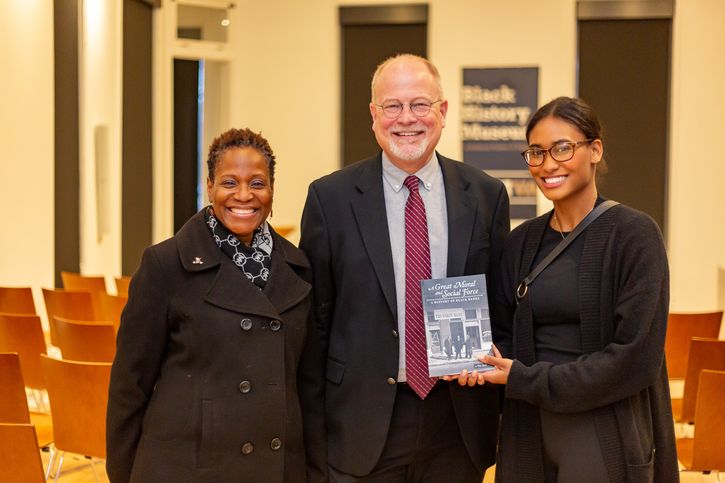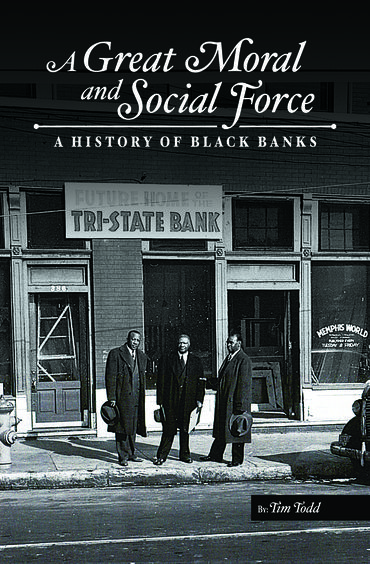
Among the attendees at an event at the Black History Museum and Cultural Center of Virginia that was focused on Richmond’s Black banking history was Maggie L. Walker’s great-great granddaughter, Liza Mickens (holding the book). Walker was the first Black female bank president in the United States and a civil rights icon. Mickens and author Timothy Todd were joined by Audrey Thompson, a volunteer at the Maggie L. Walker National Historic Site.
Audiences in Richmond, Virginia, and New Orleans took advantage of opportunities to learn more about the history of Black-owned banks in the United States through the Kansas City Fed’s book, “A Great Moral and Social Force: A History of Black Banks.”
The book was featured at an event hosted by the Maggie L. Walker National Historic Site at the Black History Museum and Cultural Center of Virginia. Richmond’s historic Jackson Ward neighborhood was the birthplace of Black finance in the United States in the late 1800s and home to numerous Black-owned banks.
After a presentation and discussion, Timothy Todd, the Bank’s executive writer, met Liza Mickens, the great-great granddaughter of Maggie L. Walker. Walker was founder of the St. Luke Penny Savings Bank in 1903, making her the first Black woman to hold such a post and likely the most well-known Black banker of the era. In addition, Walker was a civil rights and education leader in the Jim Crow era.
In addition to the Richmond event, in March the Dillard University Center for Racial Justice presented “The Riches of Freedom and the Security of Justice: The Impact of African American Financial Institutions Towards Economic Justice,” at the university’s campus in New Orleans.
The event included a panel discussion about the book, the history of Black banking, the current environment and the future. In addition to Todd, the event’s other panelists were Alden McDonald Jr., the founder and long-time president of New Orleans-based Liberty Bank and Trust Co., and Shenette Garrett-Scott, associate professor of history at Texas A&M University and the author of “Banking on Freedom: Black Women in U.S. Finance Before the New Deal.” The event was moderated by Dorian Williams, dean of the Dillard University College of Business, and Eva Baham, assistant professor of history at Dillard.

Order or download the Bank’s free book
Free copies of “A Great Moral and Social Force: A History of Black Banks,” including a digital version and hard copies, are available to the public here.
